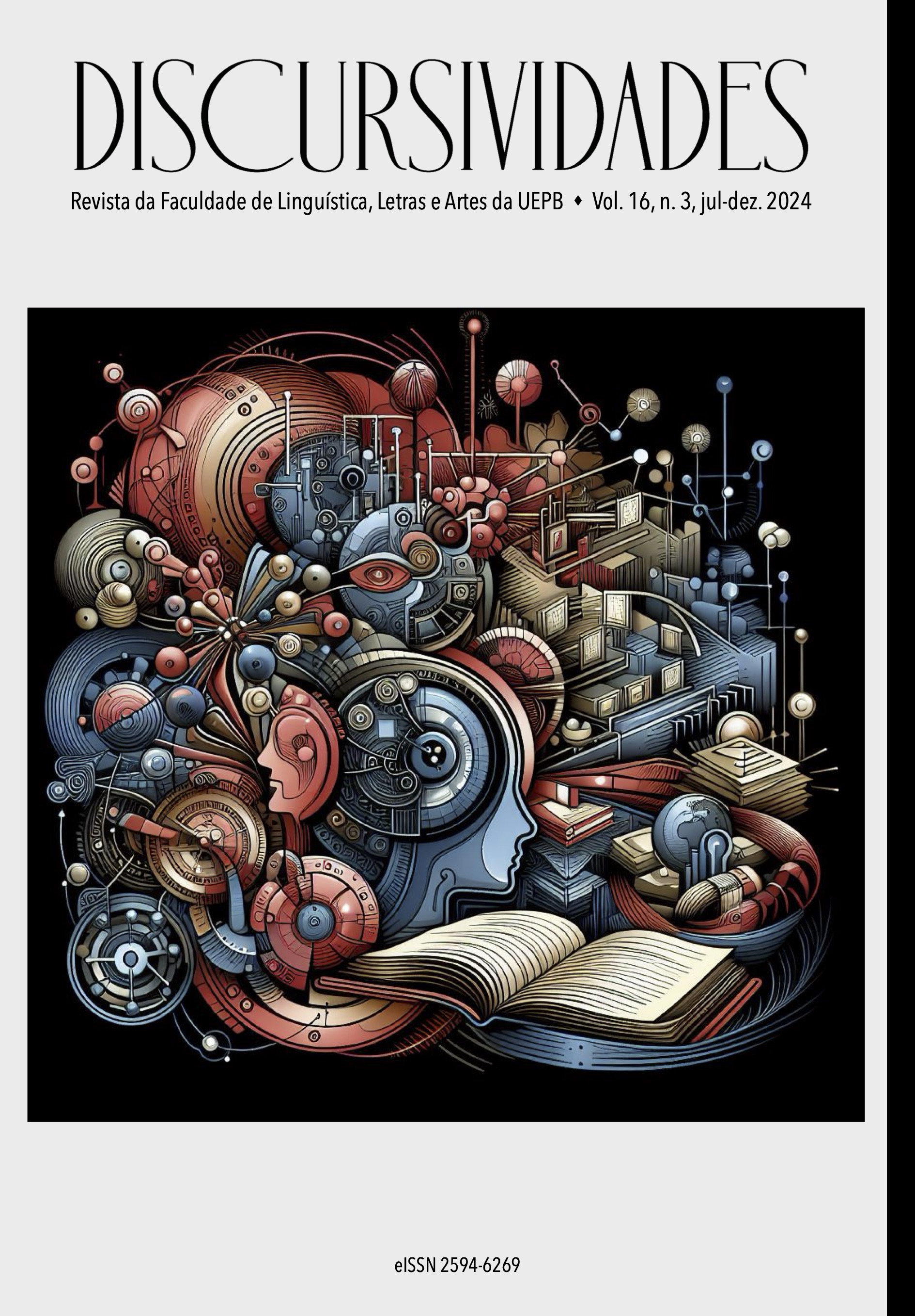Lulismo, a groggy narrator and an unstable choir in Inferno Provisório, by Luiz Ruffato
Keywords:
Lulismo, Neoliberalism, Narrator, Contemporary literatureAbstract
This essay is an adaptation of one of the chapters of the thesis enti- tled Narradores do neoliberalismo brasileiro: João Gilberto Noll e Luis Ruf- fato. Challenging the most common reading of the novel, it argues that there is not exactly an indirect speech there and that the idea of a folk choir does not render a true account of the text’s complexity. Instead of this, it is found a groggy narrator and an unstable and partitioned choir, and these charac- teristics are then read in the light of the period before and during lulismo, being the position of the subproletariat in this historical process vital.
References
ANTUNES, Ricardo. A desertificação neoliberal no Brasil (Collor, FHC e Lula). 2ª ed. São Paulo: Autores Associados, 2005.
ARANTES, Paulo Eduardo. Sentimento da dialética na experiência intelectual brasileira: dialética e dualidade segundo Antonio Candido e Roberto Schwarz. Rio de Janeiro: Paz e Terra, 1992.
BAKHTIN, Mikhail. (VOLOCHINOV). Discurso Indireto Livre em Francês, Alemão e Russo. In: Marxismo e filosofia da linguagem. 12ª ed. São Paulo: Hucitec, 2006.
CANDIDO, Antonio. A nova narrativa. In: A educação pela noite & outros ensaios. São Paulo: Ática, 1989, pp. 199-215.
CARVALHO, Laura. Valsa brasileira: do boom ao caos econômico. 1ª ed. São Paulo: Todavia, 2018.
DAVIDSON, Neil. Crisis neoliberalism and regimes of permanent exception. In: Critical Sociology, v. 43, n. 4-5, ago. 2016.
DELGADO, Gabriel Estides. A construção do narrador em Inferno provisório, de Luiz Ruffato: aderência programática ao Outro representado. In: Fronteiraz - Revista do Programa de Estudos Pós-Graduados em Literatura e Crítica Literária da PUC-SP, n. 22, julho de 2019, pp. 23-39.
HAUCK, Marcelo Antonio Ribas. Migrações geográficas e textuais em Inferno Provisório, de Luiz Ruffato. Tese (Doutorado em Letras). Programa de Pós-Graduação em Letras da Pontifícia Universidade Católica de Minas Gerais. Belo Horizonte, p. 151. 2013.
JAMESON, Fredric. Pós-Modernismo: a lógica cultural do capitalismo tardio. Tradução de Maria Elisa Cevasco. 2ª ed. São Paulo: Ática, 1997.
______. Mapeamento cognitivo. In: Revista Porto Alegre. Tradução de Gabriel Tupinambá e Luisa Marques. 29 de julho de 2021. Disponível em: <http://revistaportoalegre.com/mapeamento-cognitivo/>. Visita em: 04 set. 2023.
KURZ, Robert. O colapso da modernização: da derrocada do socialismo de caserna à crise da economia mundial. Tradução de Karen Elsabe Barbosa. Rio de Janeiro: Paz e Terra, 1992.
MEDINA, Mérida Herasme; SILVA, Antonio Braz de Oliveira. Produto Interno Bruto por Unidade da Federação — 1985-1998. Brasília: Ipea, out. 1999.
MORETTI, Franco. O século sério. Tradução de Alípio Correa e Sandra Correa. In: Novos Estudos CEBRAP, N.° 65, março 2003, pp. 3-33.
OLSEN, Niklas. The Sovereign Consumer: A New Intellectual History of Neoliberalism. Londres: Palgrave Macmillan, 2019. (Consumption and Public Life)
PELLEGRINI, Tânia. A refração do realismo em Luiz Ruffato: um inferno permanente. In: Estudos de Literatura Brasileira Contemporânea, Brasília, n. 59, 2020.
RUFFATO, Luiz. A revista Verde, de Cataguases: contribuição à história do Modernismo. Belo Horizonte: Autêntica, 2022.
______. Inferno Provisório. 1ª ed. São Paulo: Companhia das Letras, 2016.
______. O que é Inferno Provisório. In: Verbo de Minas: Letras, vol. 6, n. 10, 2006, pp. 159-161.
SINGER, André. Os sentidos do lulismo: reforma gradual e pacto conservador. 1ª ed. São Paulo: Companhia das Letras, 2012.
SPITZER, Leo. A originalidade da narrativa de Os Malavoglia. In: Revista Belfagor, volume XI, fascículo 1, páginas 37-53, 1956. Versão traduzida por Heloisa Netto em 2013 e revisada em 2019.
WOOD, James. Como funciona a ficção. Tradução de Denise Bottmann. São Paulo: SESI-SP Editora, 2017.
Downloads
Published
How to Cite
License
Copyright (c) 2024 Vinícius de Oliveira Prusch

This work is licensed under a Creative Commons Attribution 4.0 International License.
Authors who publish in this journal agree to the following terms:
a) Authors retain copyright and grant the journal the right of first publication. The articles are simultaneously licensed under the Creative Commons Attribution 4.0 International Public License (CC BY 4.0) which allows the sharing of the work with acknowledgment of its authorship and initial publication in this journal.
b) Discursividades journal offers immediate free access to its content, following the principle that making scientific knowledge available to the public free of charge provides greater global democratization of knowledge.






